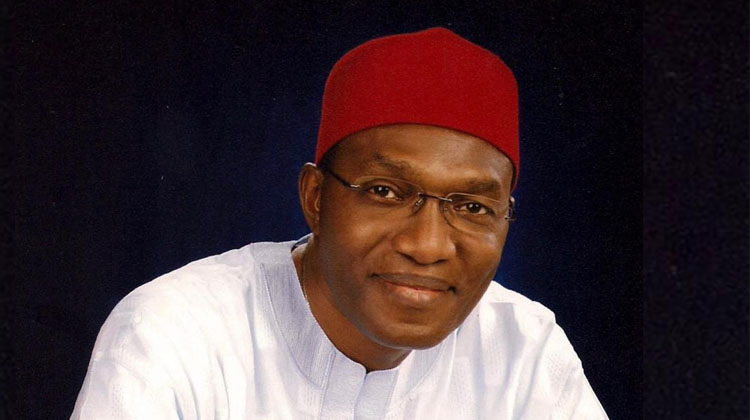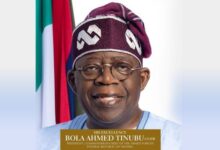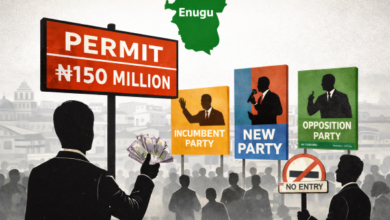AGF Approves Prosecution of Andy Uba Over Alleged ₦400m NDDC Fraud

The Attorney-General of the Federation (AGF) has formally granted the Inspector-General of Police (IGP) clearance to proceed with the prosecution of Senator Andy Uba and Benjamin Etu over their alleged involvement in a ₦400 million fraud scheme linked to the purported sale of a top federal appointment.
The green light from the AGF came after a legal review by the Department of Public Prosecutions (DPP) in the Federal Ministry of Justice, which concluded that a prima facie case exists against Uba, Etu, and a third suspect, Hajiya Fatima, currently at large.
Background: Fraud Allegation Tied to NDDC Top Appointment
According to the amended charge before the Federal High Court in Abuja, Uba and his co-defendants were accused of fraudulently presenting themselves in 2022 as having the capacity to influence the appointment of a Managing Director for the Niger Delta Development Commission (NDDC).
They allegedly demanded ₦400 million from one Mr. George Uboh under the false pretense of securing the high-profile federal appointment.
“The offence is contrary to Section 1(2) and punishable under Section 1(3) of the Advance Fee Fraud and Other Related Offences Act, 2006,” the amended charge reads.
The complaint was supported by documentary evidence and voice recordings, as cited by Uboh in a petition to the IGP dated April 5, 2023.
Legal Timeline and Court Dynamics
The case—initially before Justice Inyang Ekwo—was reassigned to Justice Mohammed Umar following the suspension of Ekwo by the National Judicial Council (NJC).
When the matter resumed on Monday, only the second defendant, Benjamin Etu, and his legal counsel were present in court. Counsel for the IGP, A.M. Abdullahi, informed the judge that the case was scheduled for arraignment, now set for September 24.
Defense lawyer C.F. Odiniru, appearing for Etu, told the court that Senator Uba was currently in the United States for medical treatment—a claim the prosecution dismissed as speculative due to the absence of supporting documentation.
“We are surprised to hear about a medical trip abroad with no evidence presented. This is a criminal proceeding, not a civil negotiation,” Abdullahi argued.
The AGF’s Position: A Clear Case to Answer
The decision to continue with prosecution followed a directive from the DPP, M.B. Abubakar, via a letter dated May 8, 2025. The certified true copy of the letter, seen by BRANDECONOMY, confirms that Andy Uba and Benjamin Etu have a case to answer, while Crystal Uba, originally named in the earlier charge, has been cleared of involvement.
“After a careful review of the duplicate case file in charge number FHC/ABJ/CR/538/2024, the evidence supports prosecution of Uba, Etu, and Hajiya Fatima (at large),” the DPP’s letter stated.
Defense Angle: “Matter Settled” Claim Raises Eyebrows
Defense counsel, Odiniru, added a twist by claiming the subject of the fraud—₦400 million—had already been settled between the parties involved.
“The matter has been resolved, the money has been paid,” Odiniru said, seeking an adjournment to allow Uba to appear at the next hearing.
However, legal experts warn that repayment or settlement in criminal matters does not eliminate culpability or invalidate the prosecution of offences under the Advance Fee Fraud Act, which is aimed at deterrence and accountability.
BRANDECONOMY Insight: What’s at Stake for the Judiciary, Politics, and Anti-Graft Landscape
This high-profile fraud case underscores a few critical issues:
- Political accountability in high places: Senator Uba, a former lawmaker with presidential links, facing trial marks a significant moment in Nigeria’s anti-corruption jurisprudence.
- Institutional integrity: The AGF’s endorsement and the DPP’s recommendation suggest a commitment to due process, even in politically sensitive cases.
- Rule of law vs. political influence: Whether the case proceeds transparently or fizzles out will test Nigeria’s evolving legal and democratic institutions.
- Impact on governance credibility: The alleged sale of federal appointments—if proven—raises major concerns about patronage networks and systemic corruption at the highest levels of public service.












